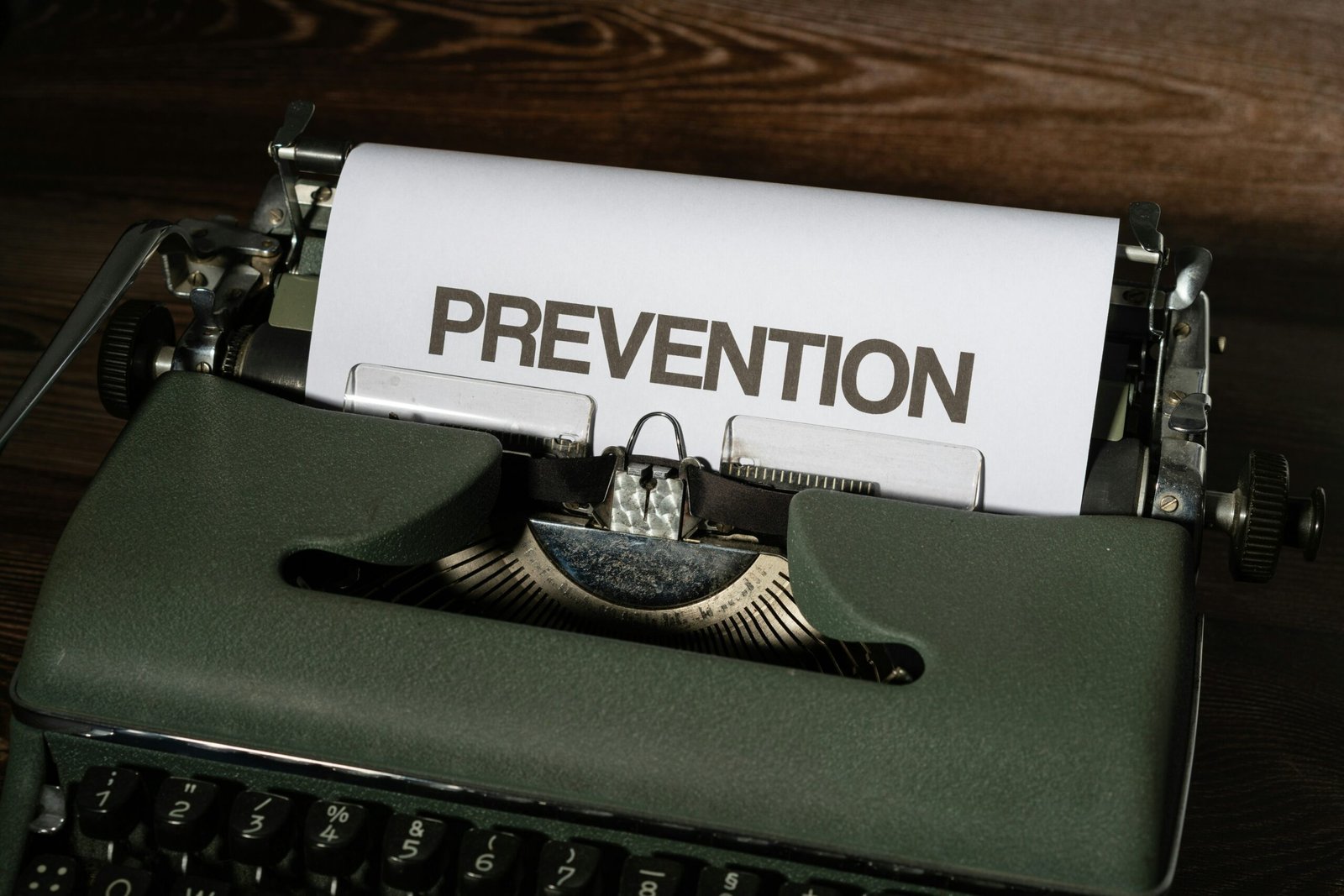It feels personal when rising costs shrink what you can do each month. Many Americans wake up worried about the national debt, taxes, and what that means for their finances in the years ahead.
This short guide lays out clear steps you can take today: a reality check on national debt, tax-smart accounts like Roth IRAs and HSAs, diversification across assets, and moves to lower risk in volatile times.
Higher borrowing can touch daily choices through taxes, interest rates, and inflation. Knowing the information now helps you plan for the future and act with calm, not fear.
Read on for practical, friendly strategies that blend accounts, investments, and simple steps designed for the U.S. economy. For more detail on rate- and inflation-aware options, see this detailed guide on protecting value over time: protecting your savings from inflation.
Key Takeaways
- Understand national debt and how it can affect taxes, growth, and borrowing costs.
- Use tax-smart accounts like Roths and HSAs to shift tax timing and reduce future burden.
- Diversify assets and investments to spread risk across markets and currencies.
- Consider refinancing liabilities when rates are low to improve cash flow.
- Balance immediate actions and long-term strategies to adapt in uncertain times.
Why this matters now in the United States economy
Growing federal obligations change how markets set the cost of credit. When national debt climbs, investors often ask for higher yields to hold longer-term Treasuries. That shift can push mortgage and loan rates up, affecting household cash flow and small-business budgets.
Present-day risks include persistent inflation that has stretched family budgets, interest rates that have reset borrowing costs, and policy shifts that can ripple through markets and the broader economy.
National debt in plain terms
In 2021 federal debt equaled about 102% of gross domestic product and projections show it rising to roughly 202% by 2051. That level means total obligations match or exceed a year’s economic output, which can pressure future taxes and growth.
- More than 45% of U.S. debt sits with domestic investors like pensions, mutual funds, and banks.
- Over 20% is held abroad, led by major foreign holders such as Japan; about 20% is held within government accounts.
Higher interest on Treasuries tends to flow into higher mortgage and loan rates. That makes careful asset mix and debt planning more important as you set goals for the future.
Time matters: short-term volatility doesn’t guarantee long-term harm if you structure assets and accounts thoughtfully. Still, understanding these risks helps you choose the right mix of assets, accounts, and strategies before markets move again.
National debt reality check: risks, resilience, and what sources say
A clear view of federal liabilities and public assets shows why the picture is more complex than headlines imply. The U.S. has roughly $37 trillion in federal liabilities, while government-owned land, buildings, and natural resources likely exceed $200 trillion.
Debt versus assets and output: Comparing obligations to gross domestic product matters, but comparing obligations to owned assets adds context. A large stock of public assets helps explain why the country retains strong credit and market confidence.

Who holds the obligations
About 20% of U.S. obligations are held by the federal government itself. Over 45% are with domestic savers, pensions, mutual funds, and institutions. More than 20% is foreign-held, with Japan a major holder.
Real-world example: China has trimmed Treasury holdings for years without disrupting markets, showing depth and liquidity in U.S. debt markets.
Social Security and Medicare timelines
Social Security’s trust fund faces depletion in roughly a decade. That does not mean benefits stop; payroll tax revenue would still fund payments, though at a lower replacement level unless Congress acts.
Medicare spending trends have been milder than earlier fears predicted, which slightly eases long-term fiscal pressure.
- Key takeaway: view obligations alongside assets, holders, and growth potential.
- When economic growth and the government’s rate of return outpace interest costs, the burden can stabilize or fall relative to output.
Tax-smart moves to protect money amid higher future taxes
Smart account choices help you lock in favorable tax treatment before rules change.
Roth IRAs and Roth 401(k)s use after-tax contributions so qualified withdrawals are tax-free in retirement. That can be valuable if government revenue needs push taxes higher in the future.
Roth conversions and basics
Converting to a Roth triggers income tax on the converted amount in the year of conversion. If an RMD (required minimum distribution) applies that year, it must be satisfied before converting.
HSA contributions: triple tax advantages
Health Savings Accounts offer pre-tax contributions, tax-deferred growth, and tax-free withdrawals for qualified medical expenses.
Eligibility requires enrollment in a high-deductible health plan. HSAs also let you invest balances for long-term growth, which helps with healthcare inflation.
Estate and inheritance planning
The TCJA’s doubled federal estate exemption is set to sunset after 2025, likely lowering thresholds in 2026. More estates may face federal taxes, and some states add inheritance levies.
Trusts, gifting, and beneficiary designations become more relevant as exemptions fall. Coordinate with an estate attorney to tailor strategies to your assets and goals.
- Consider asset location: hold income-producing assets in tax-favored accounts to improve after-tax returns.
- Work with a financial advisor and estate attorney to align accounts, trusts, and beneficiaries with retirement and legacy plans.
- Review plans periodically as laws, interest rates, and national debt trends evolve; small updates keep strategies effective.
| Account | Tax treatment | Primary benefit |
|---|---|---|
| Roth IRA / Roth 401(k) | After-tax contributions; tax-free qualified withdrawals | Tax-free retirement income |
| Traditional IRA / 401(k) | Pre-tax contributions; taxable withdrawals | Tax deferral now |
| HSA | Pre-tax contributions, tax-deferred growth, tax-free qualified withdrawals | Triple tax advantage for health costs |
| Trusts / Gifting | Estate and gift tax tools | Manage estate exposure as exemptions change |
For practical context on how national debt pressures can influence personal finances, see this overview of effects on wallets and rates: how national debt affects everyday finances.
Diversify your portfolio across assets, sectors, and countries
Spreading exposure across sectors and countries helps shield a portfolio when one market lags.
Why diversification matters: A mix of assets can reduce portfolio volatility by letting strength in one area offset weakness in another. This reduces the odds that a single shock erases gains.
Domestic exposure offers familiarity and lower political risk. International holdings hedge the chance of slower U.S. growth tied to rising debt and higher rates.
Domestic vs. international exposure
International investments can protect against U.S.-specific slowdowns but bring currency swings and political risk, especially in emerging markets. Balance exposure to avoid concentrated country risk.
Practical asset mix ideas
Use core ETFs for broad market access, high-quality bonds for ballast, real estate for income and inflation sensitivity, and commodities like gold for diversification.
- Core ETFs: low-cost, broad market coverage.
- Bonds: quality fixed income to stabilize returns when equity markets wobble.
- Real estate: income and a partial hedge versus inflation.
- Commodities: diversify real-world value, useful in inflationary periods.
Rebalance periodically within tax-efficient accounts to keep risk aligned with goals. Match investment choices to time horizon and liquidity needs; there is no single right allocation.

| Asset class | Role | Strength | Key risk |
|---|---|---|---|
| Core ETFs | Growth core | Low cost, broad exposure | Market drawdowns |
| High-quality bonds | Capital stability | Income, lower volatility | Rising yields from debt pressures |
| Real estate & REITs | Income & inflation hedge | Cash flow, tangible value | Interest-rate sensitivity |
| Commodities (gold, silver) | Store of value | Diversifies against currency weakness | Price swings, no income |
How do I protect my savings from government debt and money printing?
When public liabilities climb, everyday financial decisions can feel heavier and less certain.
Start with core accounts and clear steps. Prioritize employer retirement plans with matching contributions. Add a Roth IRA where tax-free withdrawals help retirement value. If eligible, use an HSA for triple tax benefits and long-term health costs.

Actionable checklist: accounts, allocations, and risk
Set a target allocation that balances equities for growth, bonds or cash for stability, and a small slice of real assets to hedge inflation.
Keep an emergency fund so you avoid selling investments in a downturn. Refinance high-cost debt when rates allow to improve cash flow. Add international exposure to hedge slower U.S. growth but watch currency and political risks.
| Focus | Action | Why it helps | Key risk |
|---|---|---|---|
| Accounts | 401(k) match, Roth IRA, HSA | Tax-efficient growth and withdrawals | Policy or eligibility changes |
| Allocation | Equities, bonds, real assets | Balance growth and value preservation | Market and rate swings |
| Debt & liquidity | Refinance, emergency cash | Lower costs; avoid forced selling | Rising rates limit refinancing |
| Tax strategy | Asset location, Roth conversions | Improve after-tax returns | Wrong timing increases tax bill |
Manage interest-rate risk: liabilities, cash, and fixed income
As bond investors demand greater returns, lenders pass costs to borrowers in the form of steeper rates. That link between markets and household borrowing matters today.
Refinance and debt strategy for mortgages and loans
Rising interest makes variable-rate balances and new loans more expensive. Mortgages, student loans, and small-business lines can strain income and reduce flexibility if left unchecked.
Evaluate refinancing when rates fall. Use a break-even analysis and consider your time horizon before resetting terms.
Fixed-income positioning and account placement
Build a ladder of maturities, favor high-quality bonds, and segment cash for short-term needs. This reduces reinvestment and duration risk across times of uncertainty.
Place interest-bearing assets across accounts wisely: taxable account income faces different tax treatment than an account like an IRA or HSA. That choice affects after-tax income.
- Keep ample liquidity to avoid selling long-duration assets at the wrong time.
- Match liability duration with asset duration when practical to lower mismatch risk.
- Paying down variable-rate debt often yields a risk-free return equal to avoided interest.
- Review credit quality and issuer exposure regularly to limit default risk as rates shift.
Inflation hedges: tangible assets and store-of-value strategies
Hard assets often move differently than paper markets during periods of rising prices. That difference is why many investors consider a slice of physical holdings to guard purchasing power.
Gold, silver, real estate, and collectibles: benefits and trade-offs
Tangible assets can preserve value because they are not promises on a single balance sheet or tied to one currency. This makes them useful when fiat currency weakens in a country.
- Gold & silver: liquid, long historical use as a store of value, but carry storage and dealer spreads.
- Real estate: offers income and an inflation link, yet financing costs and debt dynamics can bend prices.
- Collectibles: scarce and sometimes high-return, but volatile and hard to sell quickly.
Practical issues matter: custody, insurance, authenticity checks, and transaction fees shape net returns. Plan exit routes so you are not forced to sell in thin markets.
“In stressed economies, people often move wealth into hard assets or foreign currency to keep buying power.”
Rule of thumb: keep core diversified investments at the center and use inflation hedges as complements, not substitutes. Rebalance periodically and size positions to limit concentration risk.
Legal structures, compliance, and advanced asset protection
Smart entity design gives you clearer lines between personal wealth and business exposure.
LLCs and trusts can separate assets from business risk and offer privacy when set up under state law. An LLC limits liability for operating ventures. A trust manages how an estate transfers wealth and can reduce exposure if exemptions change.
LLCs and trusts: separation, privacy, estate benefits
Use an LLC for business holdings and rental property to keep personal assets distinct. Use a trust or trust fund to set distribution rules, name successors, and simplify probate.
Work with a financial advisor and an estate attorney to choose the right documents and funding steps. Clear titles and beneficiary language matter for effectiveness.
Offshore accounts and FATCA: lawful use, reporting, risks
Offshore accounts in places like the Cayman Islands, Switzerland, or Singapore can diversify jurisdictional risk. U.S. persons must report these accounts and comply with FATCA and IRS rules.
Costs, changing laws, and reporting burdens are practical downsides. Stay transparent: failure to report triggers penalties and scrutiny from the government.
Cryptocurrencies: custody, taxes, and regulation
Crypto offers decentralization and global access but needs strong custody practices. Hardware wallets, multisig arrangements, and documented access plans help secure digital assets.
Most exchanges require KYC and tax rules apply to sales and swaps. Consult a tax adviser or financial advisor about reporting capital gains and structuring digital holdings within estate plans.
| Structure | Primary benefit | Main risk | When to use |
|---|---|---|---|
| LLC | Liability separation for business assets | Formation and maintenance costs | Rental property, operating business |
| Revocable trust | Probate avoidance, easy amendment | No asset protection from creditors | Estate transfer planning |
| Irrevocable trust / trust fund | Estate exposure reduction, creditor shield | Limited control once funded | Legacy planning, tax strategies |
| Offshore account | Jurisdictional diversification | Reporting complexity, regulatory change | Cross-border business or holdings |
Practical steps: document access rules for digital assets, keep trust instructions current, and review structures with a financial advisor periodically. A clear plan helps assets pass smoothly across markets and countries.
Conclusion
Plan today so your retirement and estate choices stand firm across different fiscal paths.
Social Security benefits would not stop if the trust fund’s reserves shrink; tax revenue would still fund payments, though benefit levels may change without reforms.
Keep a diversified portfolio, use tax-smart accounts, and set an estate plan so assets move smoothly to heirs. Annual reviews of accounts, taxes, and allocations help you adapt as national debt trends and policy shift.
Long-term discipline beats chasing short-term headlines. Rebalance to match goals, build reliable income streams for retirement, and consult a financial advisor, tax pro, and estate attorney to tailor strategies.
With steady steps today, you can preserve value across cycles, support your finances, and stay on track for the future you want.
FAQ
What immediate threats should Americans watch in today’s economy?
Rising consumer prices, shifting Federal Reserve interest-rate policy, and fiscal deficits top the list. Inflation erodes purchasing power. Higher rates can hurt bond values but help savers who move into safer short-term instruments. Large fiscal deficits raise the possibility of higher taxes or future monetary accommodation. Stay informed about CPI reports, Fed statements, and federal budget trends to adjust plans.
How does national debt compare to GDP and why it matters?
Debt-to-GDP shows the country’s ability to carry obligations relative to economic output. A higher ratio means a bigger share of public resources may go to interest payments, limiting policy options. It doesn’t predict catastrophe by itself, but persistent deficits change risk dynamics for markets, interest rates, and future tax policy.
Who owns U.S. Treasuries and why does ownership matter?
Holdings include the Federal Reserve, domestic investors like pensions and mutual funds, and foreign governments. Ownership mix affects demand and yields. Heavy foreign selling could push yields up; Federal Reserve purchases can lower borrowing costs. Diversified holders generally support market stability.
Are Social Security and Medicare trust funds safe long term?
Trust funds hold Treasury securities and face long-term shortfalls if current law stays unchanged. That means scheduled benefits may exceed dedicated revenue years from now unless Congress authorizes changes. It’s prudent to plan for potential adjustments while relying on these programs for baseline retirement support.
Which tax-advantaged accounts help reduce future tax exposure?
Roth IRAs and Roth 401(k)s, health savings accounts (HSAs), and municipal bonds can help. Roths lock in today’s tax rate for future tax-free distributions. HSAs offer triple tax benefits for qualified health costs. Municipal bonds often provide tax-exempt income at the federal (and sometimes state) level.
How should estate planning adjust for changing exemption levels?
Use revocable and irrevocable trusts, lifetime gifting strategies, and beneficiary designations to shape outcomes if exemptions shrink. Work with an estate attorney and tax advisor to fit trusts and power-of-attorney documents to personal goals and likely future tax scenarios.
What role does international diversification play?
Overseas stocks, bonds, and real assets reduce reliance on U.S.-only growth and the dollar. International exposure can hedge domestic policy risk and capture different growth cycles. Use low-cost ETFs and mutual funds to gain broad, tax-efficient access.
What simple asset mixes work for balancing growth and protection?
A core-satellite approach helps: a low-cost core of diversified stock and bond ETFs, plus satellite holdings like real estate investment trusts, commodities, or inflation-linked bonds for specific protection. Adjust allocations by age, goals, and risk tolerance, and rebalance annually.
What checklist should investors follow to defend against fiscal and monetary risk?
Review emergency cash (3–12 months), ladder short-term fixed income, add Treasury Inflation-Protected Securities (TIPS), keep diversified equities, include real assets or commodities, max qualified tax-advantaged accounts, and update estate documents. Consult a fee-only financial planner for tailored allocations.
How can homeowners and borrowers manage higher interest rates?
Consider locking in fixed mortgage rates when they’re attractive, shortening loan terms if cash flow allows, and avoiding adjustable-rate resets that could spike payments. For student loans, evaluate refinancing only if you won’t lose beneficial protections or lower-income options.
Which tangible assets hedge inflation best and what are drawbacks?
Real estate, physical precious metals like gold and silver, and certain commodities often hold value during inflation. Downsides include liquidity issues, storage or management costs, and variable returns. Use a measured allocation rather than betting everything on a single asset class.
When do LLCs and trusts make sense for asset protection?
Use LLCs to separate business liabilities from personal assets and to hold real estate for liability insulation. Trusts help control distribution, reduce probate friction, and can offer estate-tax planning advantages. Legal and tax advice is essential to set these up correctly.
Are offshore accounts a legal way to protect wealth?
Offshore banking and foreign trusts have legitimate uses, like asset diversification and international business. U.S. taxpayers must report foreign accounts under FATCA and FBAR rules. Noncompliance carries severe penalties, so work with an international tax specialist if you pursue this route.
What are the key issues with using cryptocurrencies for protection?
Cryptocurrencies offer decentralization and potential inflation resistance but come with high volatility, custody risks, and evolving tax and regulatory regimes. Treat crypto as a speculative satellite allocation and use reputable custodians, secure keys, and clear tax reporting practices.
How often should someone revisit their plan in response to policy or market shifts?
Review major goals and asset allocation annually and after life changes—job shifts, inheritance, or major market moves. Reassess tax and estate strategies when laws change or before major political cycles that could alter fiscal policy.










